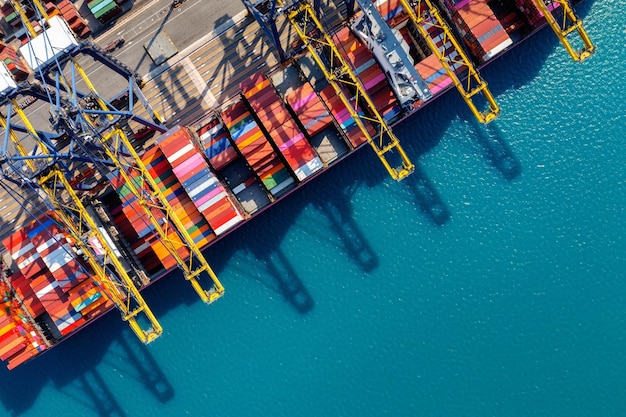The International Maritime Organization in London: Promoting Safety and Sustainability
Introduction
The International Maritime Organization (IMO), headquartered in London, is a specialized agency of the United Nations responsible for promoting safe, secure, and environmentally-friendly shipping. Established in 1948, the IMO has played a crucial role in shaping international maritime regulations, ensuring the smooth operation of global trade while protecting the seas and marine life.
Promoting Safety at Sea
Safety is paramount in the maritime industry, and the IMO plays a vital role in establishing and enforcing regulations to ensure the well-being of seafarers, passengers, and cargo. The organization sets standards related to vessel construction, navigation, crew training, and emergency response protocols.
One of the key initiatives of the IMO is the International Convention for the Safety of Life at Sea (SOLAS), which sets minimum safety standards for ships on international voyages. SOLAS covers various aspects, including ship design and construction, fire protection and firefighting equipment, life-saving appliances, and communication systems.
In addition to SOLAS, the IMO has developed several other conventions and codes to address specific safety issues. The International Convention on Standards of Training, Certification, and Watchkeeping for Seafarers (STCW) ensures that seafarers are adequately trained and certified to perform their duties effectively. The International Code for the Security of Ships and Port Facilities (ISPS Code) aims to prevent acts of terrorism against ships and port facilities.
“Safety, quality, and environmental protection are inextricably linked in modern shipping.” – Kitack Lim, IMO Secretary-General.
Promoting Environmental Sustainability
Recognizing the vulnerability of marine ecosystems, the IMO has been at the forefront of efforts to reduce the environmental impact of shipping. Through its Marine Environment Protection Committee (MEPC), the organization has developed and implemented various measures to address air pollution, greenhouse gas emissions, and the disposal of harmful substances.
One of the most significant milestones in environmental protection is the International Convention for the Prevention of Pollution from Ships (MARPOL). MARPOL sets standards for the prevention of pollution from ships by regulating discharges of oil, chemicals, sewage, and garbage into the sea. It also addresses atmospheric pollution by limiting sulfur oxide and nitrogen oxide emissions from ships.
The IMO has been proactive in promoting energy efficiency in shipping through its Energy Efficiency Design Index (EEDI) and the Ship Energy Efficiency Management Plan (SEEMP). These initiatives aim to reduce greenhouse gas emissions and improve fuel efficiency by encouraging the adoption of advanced technologies and operational best practices.
“Shipping must continue to tackle climate change and contribute to sustainable development.” – Kitack Lim, IMO Secretary-General.
Collaboration and Capacity Building
The IMO recognizes that effective maritime governance requires collaboration among member states, industry stakeholders, and international organizations. The organization serves as a platform for governments to discuss and adopt global shipping regulations, fostering consensus and cooperation on critical issues.
Moreover, the IMO provides technical assistance and capacity-building programs to developing countries, enabling them to implement and enforce international maritime standards effectively. These programs range from training workshops and seminars to the provision of essential equipment and infrastructure improvements.
The Future of Maritime Regulation
As the maritime industry continues to evolve, the IMO faces new challenges in ensuring safety, security, and sustainability. Rapid technological advancements, such as autonomous ships and digitalization, raise questions about regulatory frameworks and the potential impact on traditional maritime practices.
To adapt to these changes, the IMO has established the Maritime Safety Committee (MSC) and the Legal Committee (LEG) to address emerging safety and legal issues associated with new technologies. The organization actively engages with industry stakeholders, academia, and research institutions to stay abreast of technological developments and incorporate them into future regulatory frameworks.
Conclusion
The International Maritime Organization in London plays a pivotal role in promoting safety, security, and environmental sustainability in the maritime industry. Through its regulations and conventions, the IMO ensures that ships are constructed and operated to the highest safety standards, while also addressing urgent environmental concerns. The organization’s collaborative approach and capacity-building initiatives enable countries worldwide to participate actively in shaping the future of the maritime sector. As the industry continues to transform, the IMO remains committed to facilitating safe, secure, and sustainable shipping for the benefit of all.



